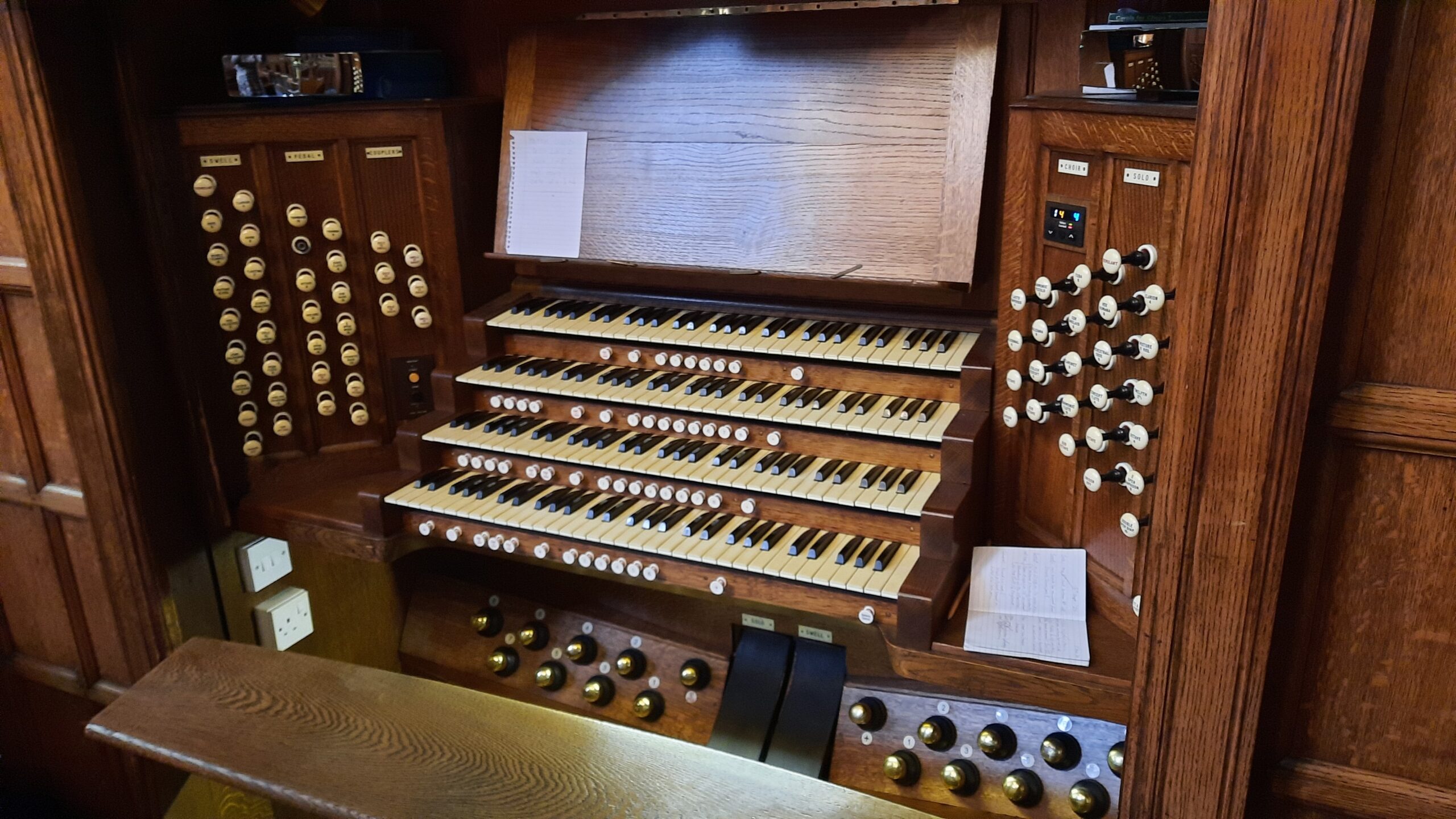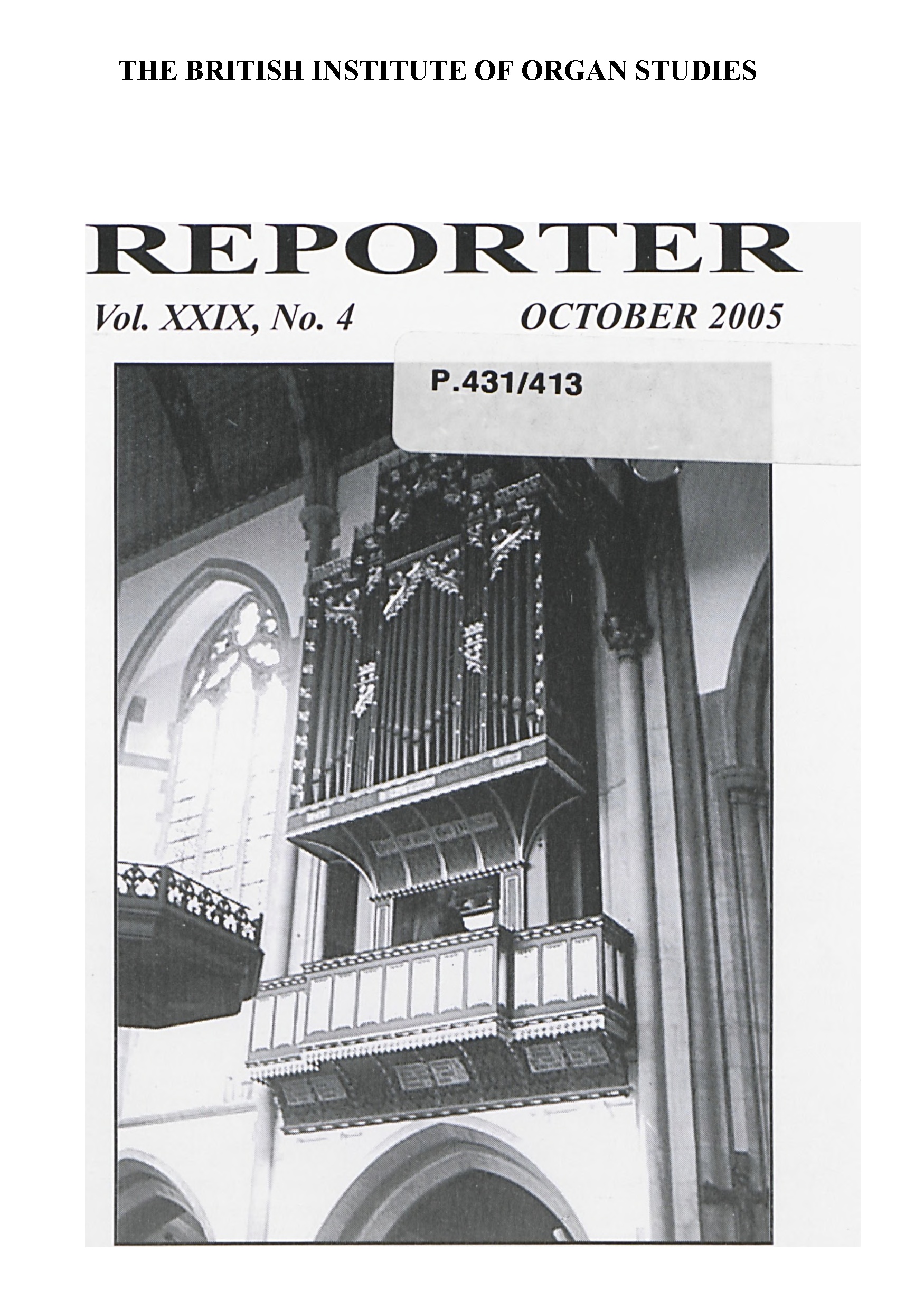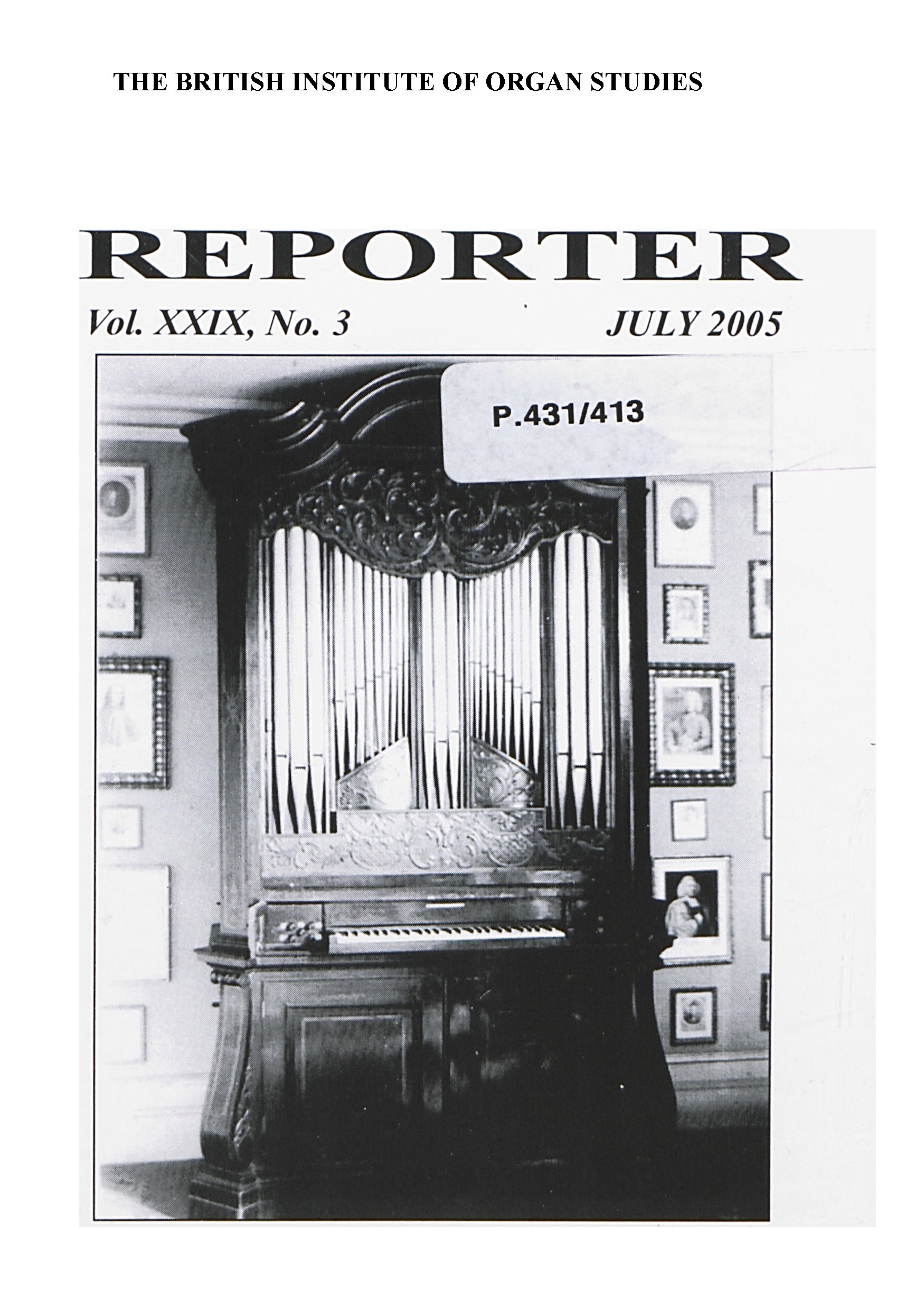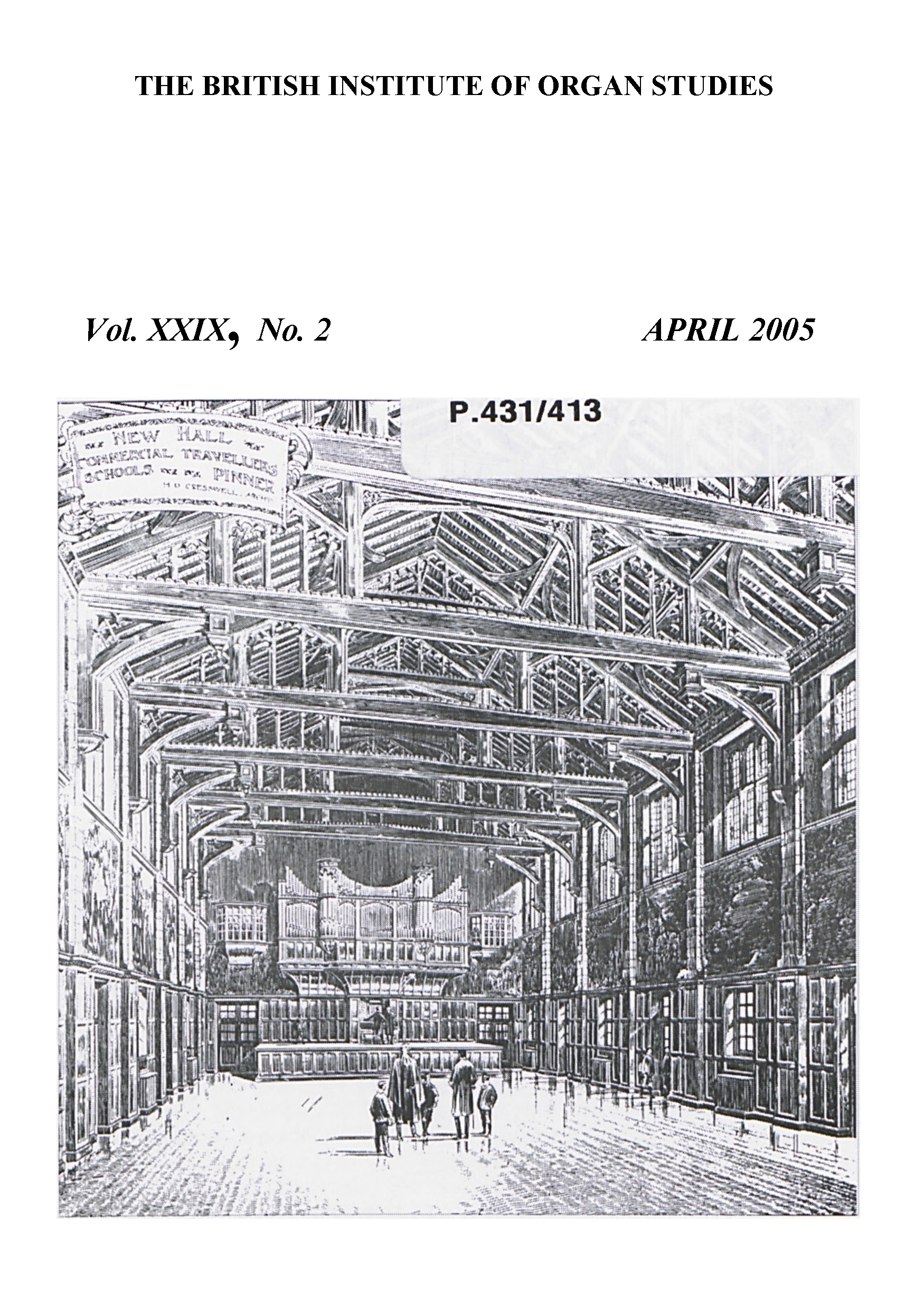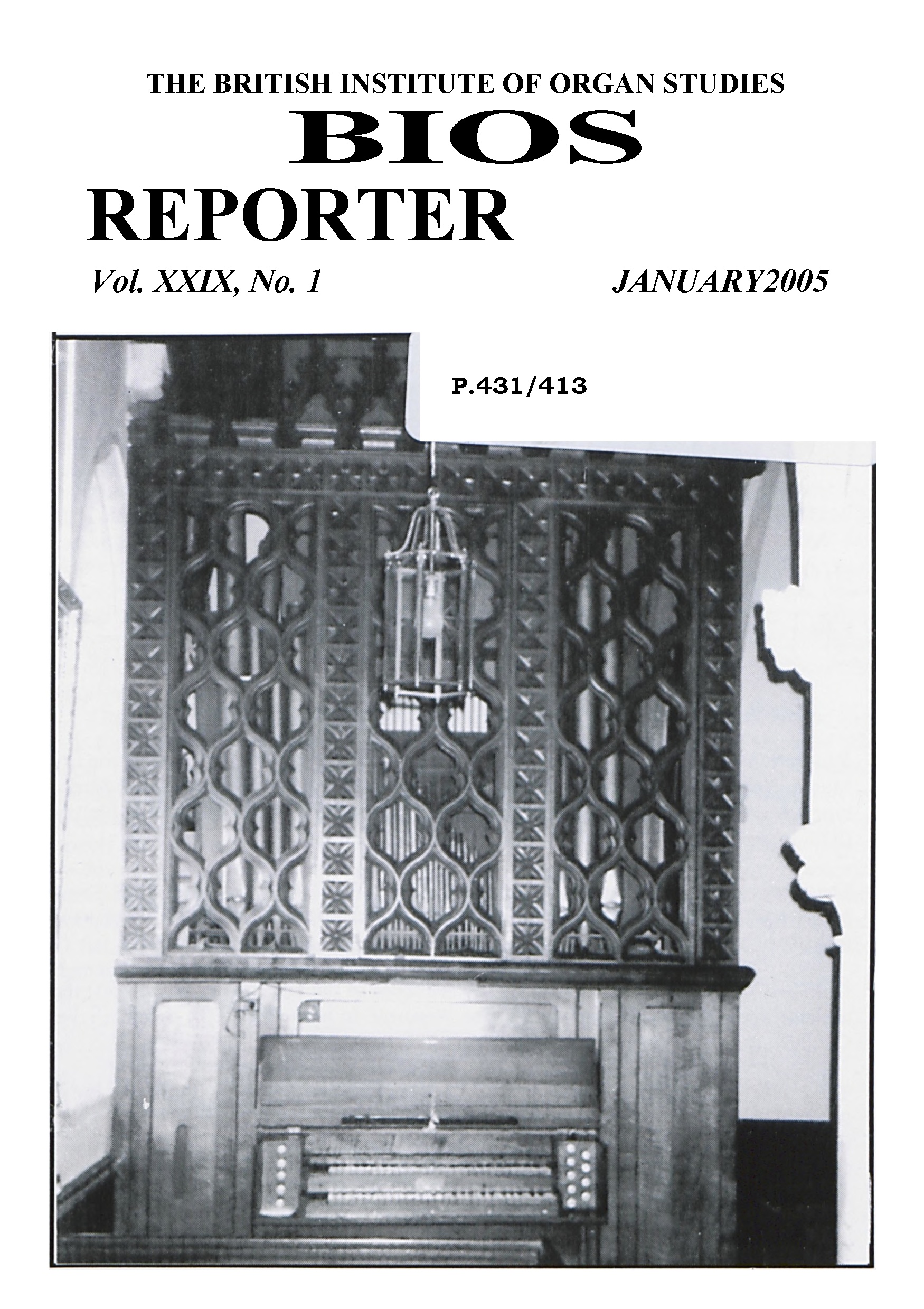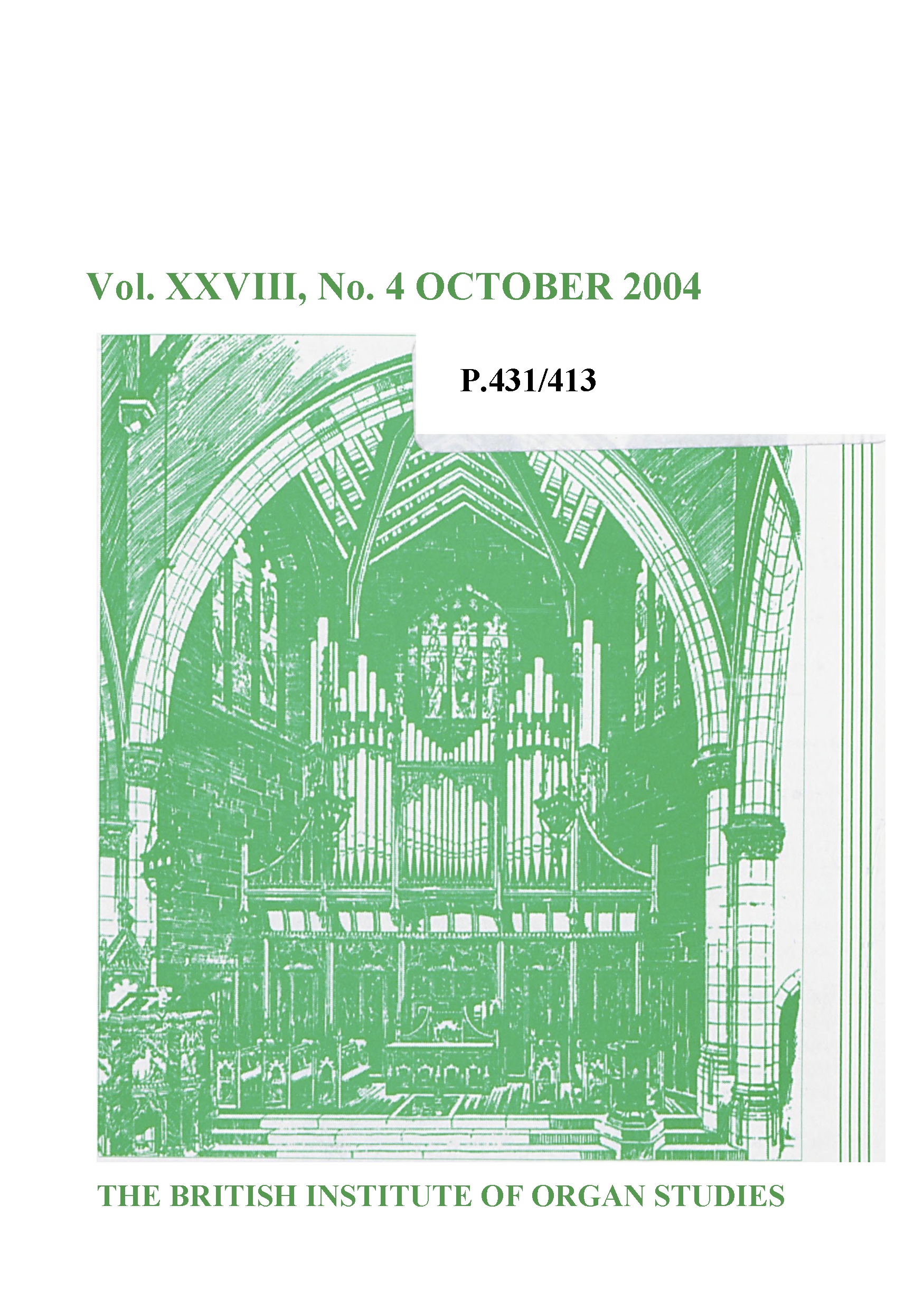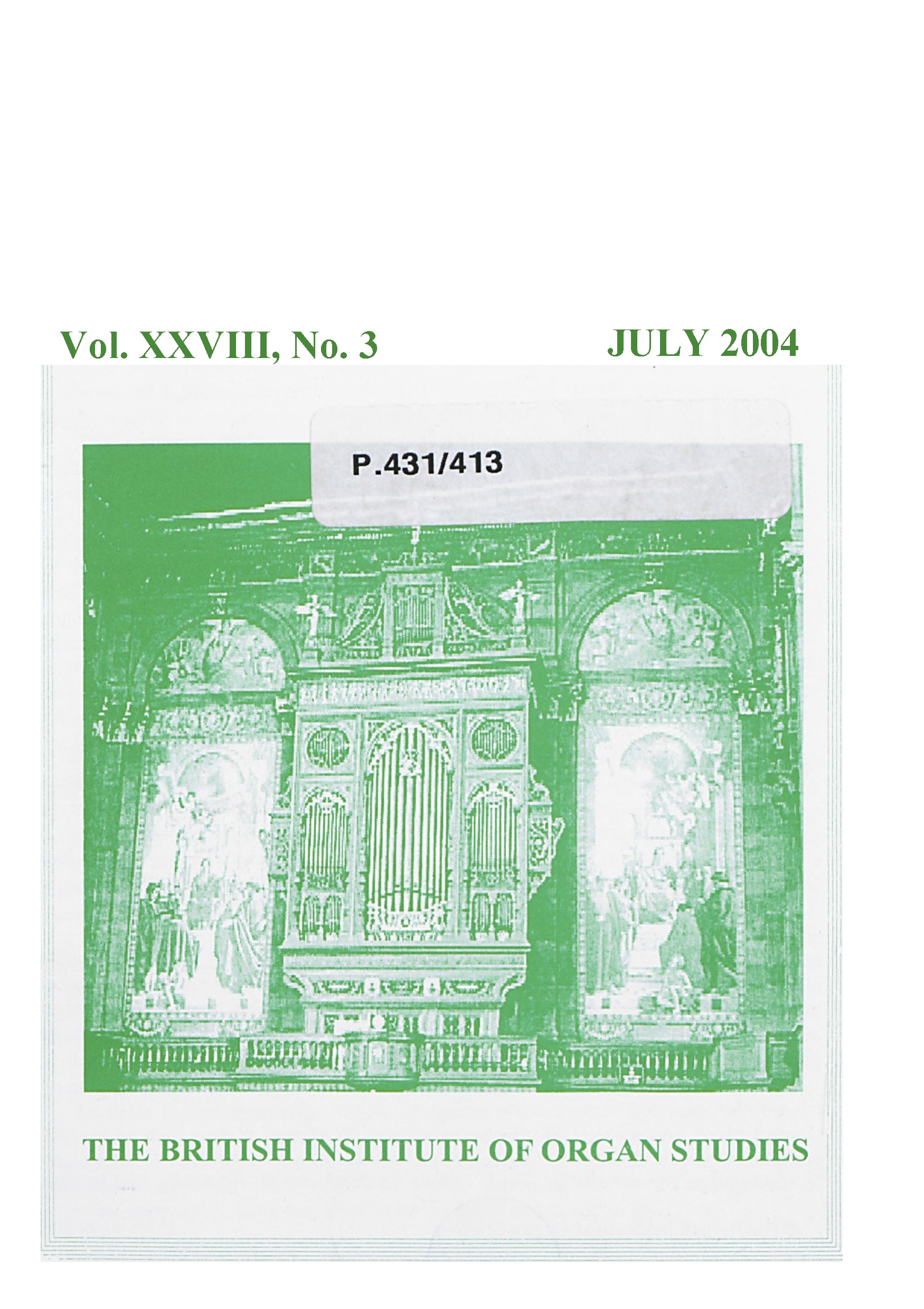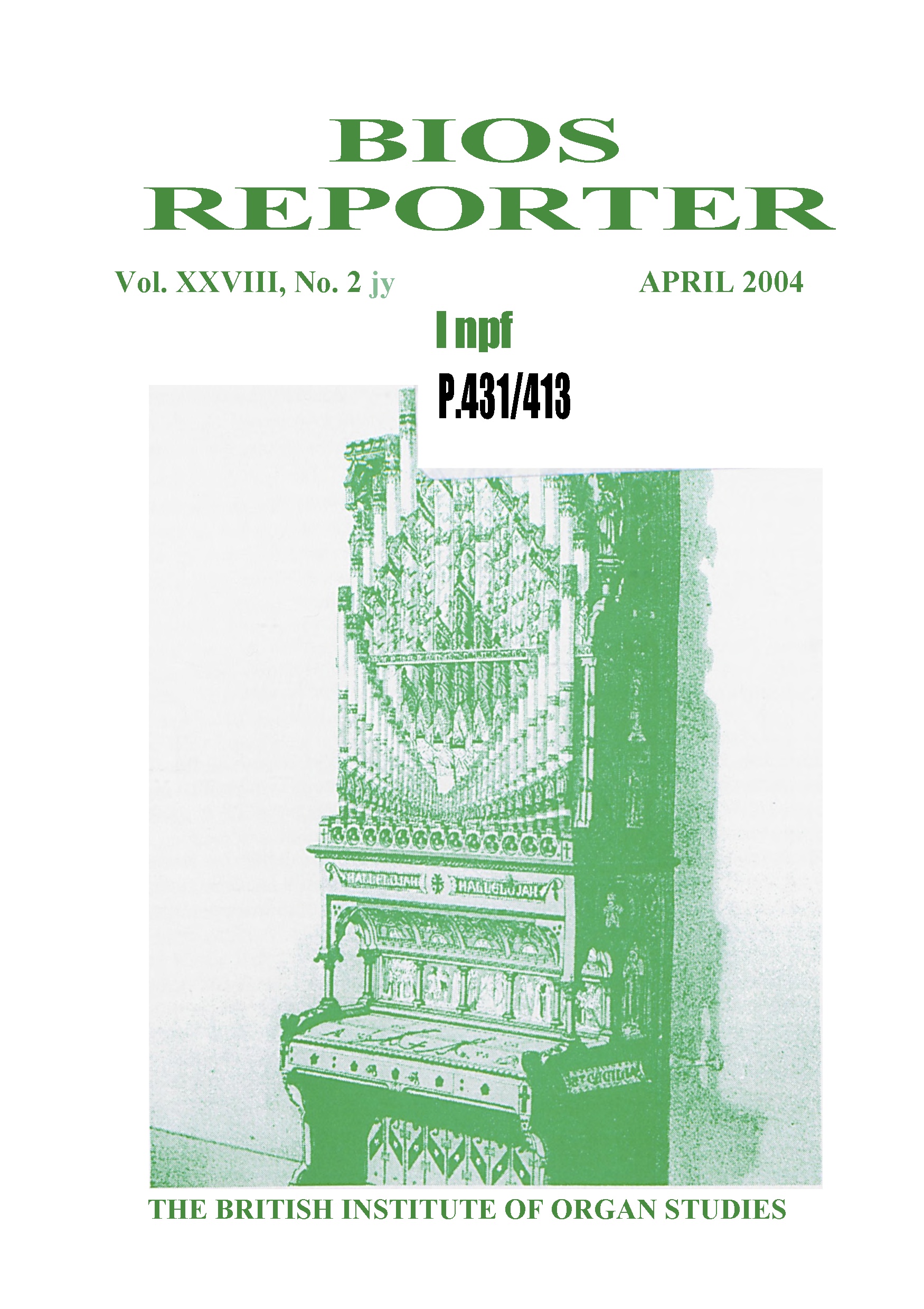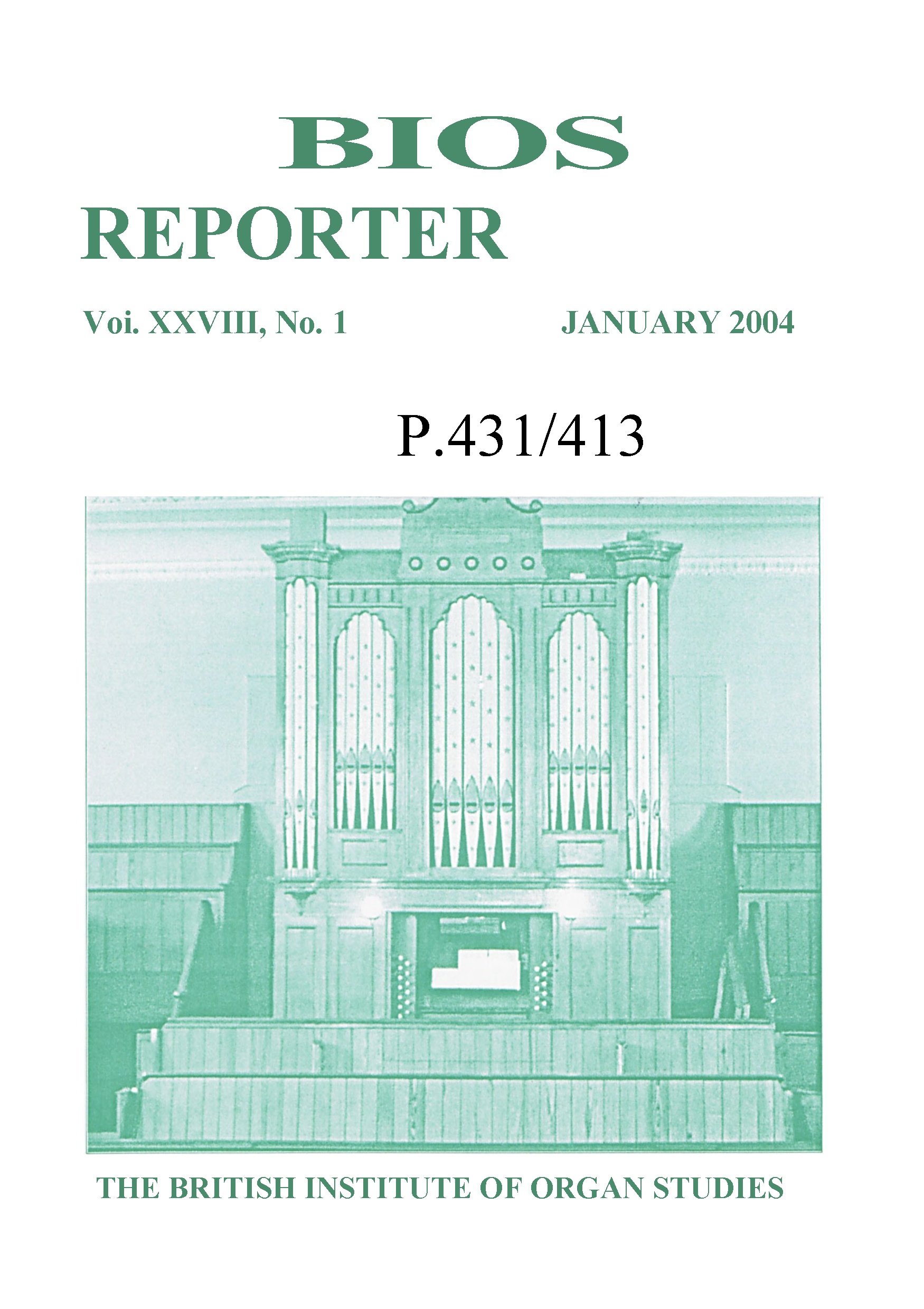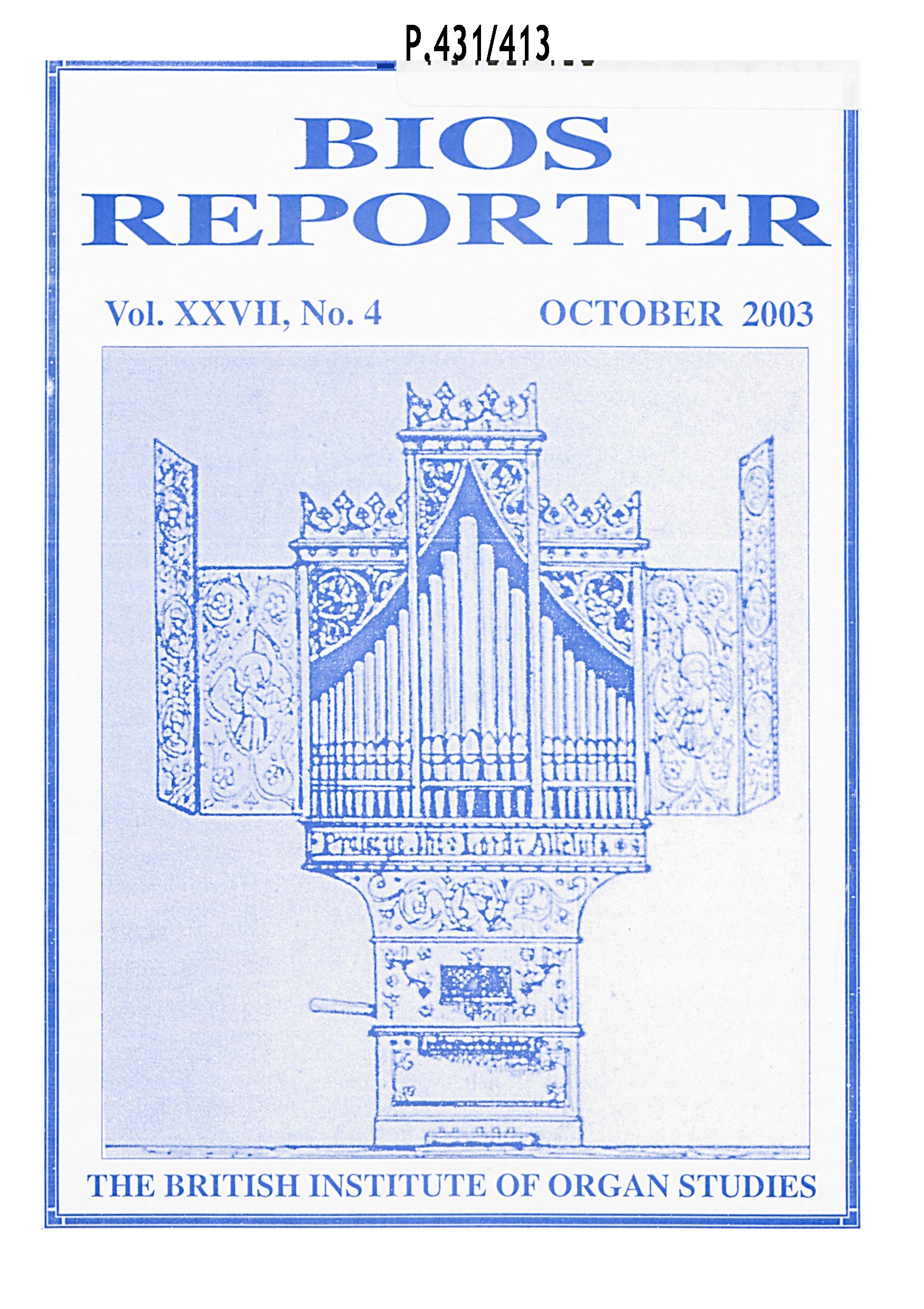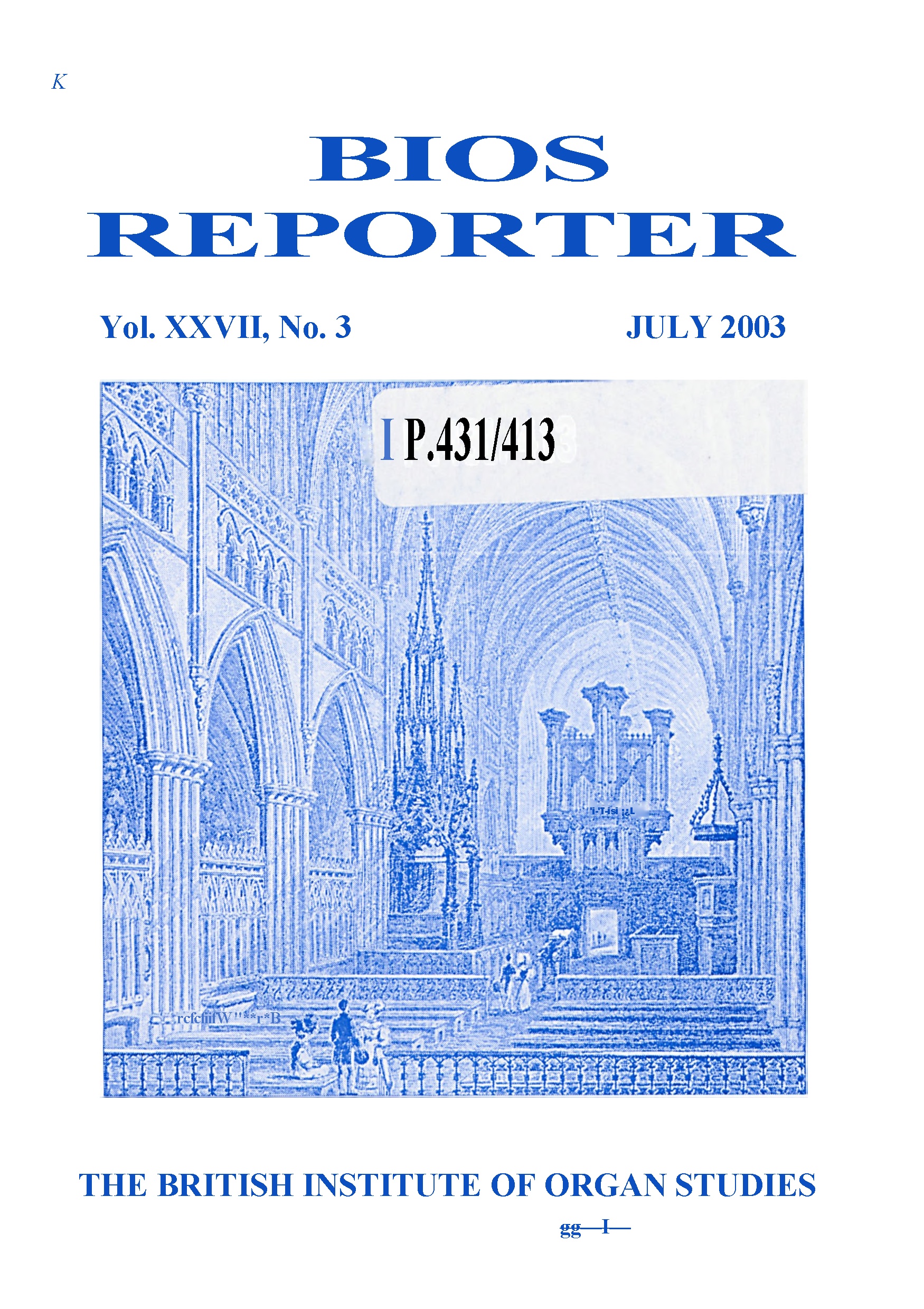BIOS publishes a quarterly Reporter newsletter and magazine and a yearly Journal. Both contain articles on organ history, the Journal hoping to attract mature studies, the Reporter offering a place for exposure of interim or conjectural work.
If you are looking for uses of a particular word, the BIOS guide to ‘searching by keyword‘ may be helpful.
BIOS Reporter – Volume 29, No.4 – October 2005
The preservation of records relating to organs and organ-building is fundamental to the role of BIOS. Similarly, every organ-builder of repute and business common sense understands the importance of records relating to the company, even work undertaken by the firm perhaps a century or more ago. An organ which has been out of a company’s read more
BIOS Reporter – Volume 29, No.3 – July 2005
The preservation of historic organs ought to be a simple affair, requiring no great feats of imagination or administration to ensure that important material is not destroyed; in particular, ecclesiastical exemption in planning matters, involving dedicated experts, is the obvious vehicle to deliver the necessary safeguards to protect valuable instruments and artefacts, in conjunction with read more
BIOS Reporter – Volume 29, No.2 – April 2005
The Pontificate of John Paul II marked a period of profound political change in Europe, affecting many aspects of society in different degrees, including those who study the organ and its music… read more
BIOS Reporter – Volume 29, No.1 – January 2005
A chance remark, made over three fine harpsichords, on a topic much researched in the past three decades as equal temperament has been called to account. The consensus that equal temperament became the dominant tuning as the nineteenth century progressed may have ignored something peculiar to the organ and the harp. Of all instruments in read more
BIOS Reporter – Volume 28, No.4 – October 2004
…The Bermondsey organ will do much to clarify this debate. It has been subjected to a rigorous restoration; an internal inspection of the organ reveals immediately the difference between original and replacement material, the latter the subject of detailed study of the organ before restoration. The result is a coherent, working organ on which services read more
BIOS Reporter – Volume 28, No.3 – July 2004
Ailred’s complaint from the twelfth century resonates in unexpected ways in the early years of the twenty-first century. We no longer have to endure ‘the noise of the cymbals’ (the irreverent might suspect that Ailred may have possessed prescience of some neo-baroque organs); ‘the sound of the bellows’ rarely troubles the modem organist, although the read more
BIOS Reporter – Volume 28, No.2 – April 2004
The work to be undertaken at the Royal Festival Hall (described on pp. 8-13) brings back memories of the flush of enthusiasm which surrounded the Downes organ and organ-building in general during the 1950s and 60s… read more
BIOS Reporter – Volume 28, No.1 – January 2004
It is generally assumed that the basso continuo simply disappeared by c. 1790 but its demise was part of a complex process. The Classical period (the preserve of mature Mozart and Haydn, Beethoven and Schubert) embraced the French Revolution; this had many consequences, including the imposition, on the continent, of the metric system, and the read more
BIOS Reporter – Volume 27, No.4 – October 2003
The performance on the organ of contrapuntal music from the late-Baroquc period has received much attention, scholarly and otherwise, including the enthusiastic assumptions characteristic of the mid-twentieth century. There is a consensus that registrations should permit the counterpoint to be heard clearly and tempi should allow the details of the music to be heard… read more
BIOS Reporter – Volume 27, No.3 – July 2003
It seems that in many primary schools children arc not being given a musical education. Whether one approves or not of the way in which education is organized, it has to be recognized that the insatiable thirst of government for statistics relating to the performance of pupils has led to a concentration on those areas read more
